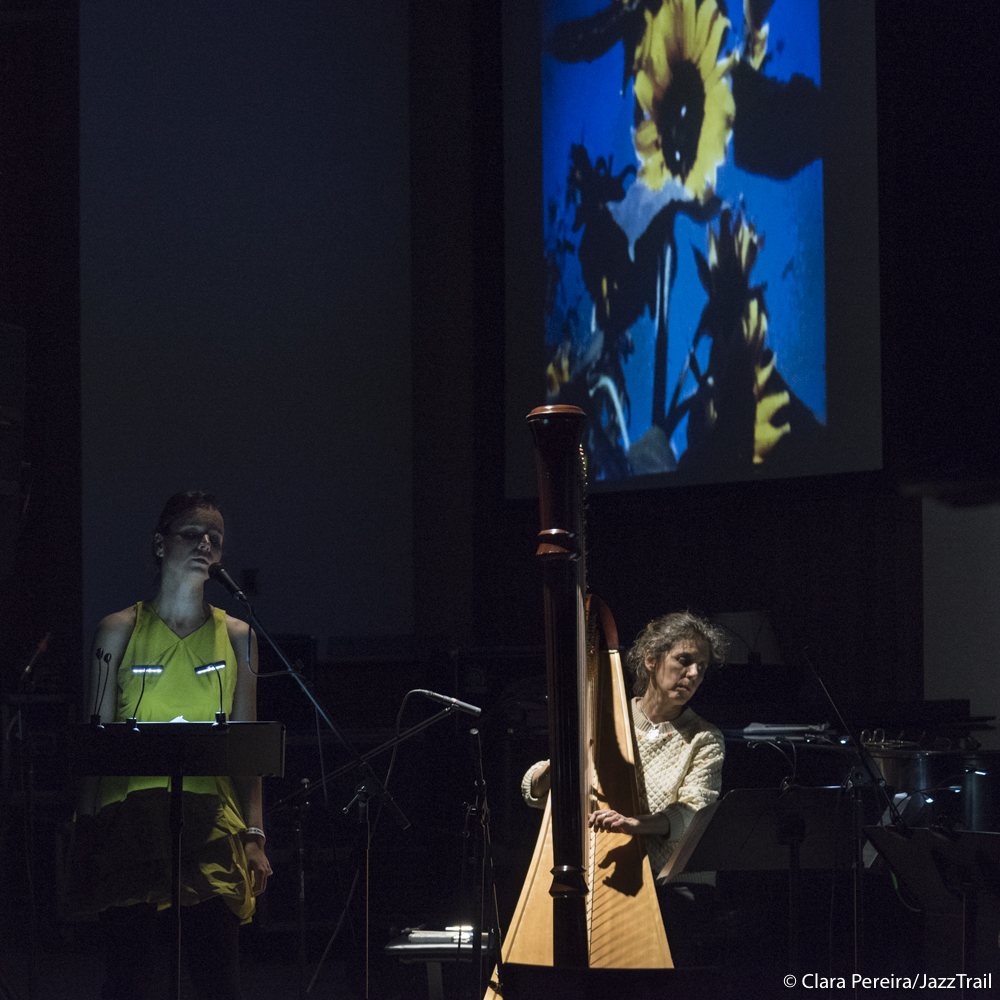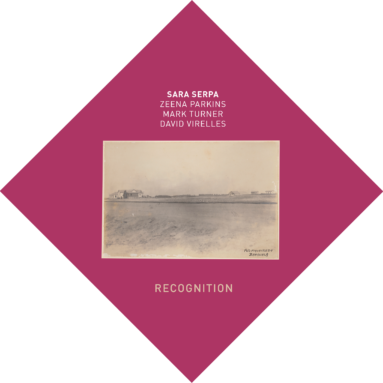
Best of 2020 Lists:
Downbeat Magazine Top-Rated Albums of 2020
Mulheres Que Causaram Ondas em 2020 – Rimas e Batidas
Widely acclaimed as one of the premier vocalists of her generation and recently crowned the #1 Rising Star Female Vocalist in the 2019 DownBeat Critics Poll, Sara Serpa pushes headfirst into innovative musical territory with her tenth album, Recognition: Music For a Silent Film. A collection of Serpa’s original pieces set to moving images, the album features her singing and performing spoken word alongside some of the most recognizable and distinctive artists in jazz and improvised music: saxophonist Mark Turner (Billy Hart, Tom Harrell), pianist David Virelles (Chris Potter, Henry Threadgill) and harpist Zeena Parkins (Björk, John Zorn).
Recognition is a singular multi-disciplinary work that traces the historical legacy of Portuguese colonialism in Africa through moving image and sound. From her family’s archives, Serpa adapted Super 8 footage of various scenes under Portuguese colonial rule in 1960s Angola into an experimental documentary in the format of a silent film, and she alone composed its musical counterpart as well, a rare and massive undertaking.
Serpa uses her voice as both an ensemble instrument and a focal point for narrative during passages of spoken word, which came out of Serpa’s intensive, self-directed research into the period. More than solely an achievement in music, Recognition addresses thematic concerns that are relevant and significant in the present day. As Serpa eloquently summarizes: “Talking about Angola and Portugal is like talking about Brazil, United States and Europe. The Western world shares a collective shameful past of occupation, exploitation, slave trade, oppression, racism, segregation, violence and abuse.”
Several motivations animated her work on this project, including the desire “to highlight the power of music as a tool for social evolution, reflection and education,” and “to break the silence about Portuguese colonialism and institutional racism.”
With the assistance of film director Bruno Soares, Serpa organized the material into an hour-long silent film intercut with text by Amílcar Cabral, a key figure of African anti-colonial resistance. During the course of the project, Serpa explored the legacy of that difficult historical moment as well as her family’s silence surrounding it, providing a visual and sonic narrative encouraging individual reflection.
“There was a traumatic situation because when the colonies became independent, suddenly Portuguese had to flee, leaving everything behind. They had to adapt to a country that most of them had never been to and that rejected them, so there’s a kind of silence, and not many people in my family have talked openly about this. Perhaps this is the work of the following generations, to digest and process the past,” Serpa says.
“There is also institutional silence. In schools you’re not taught about it, and because of that I felt the need to educate myself. So there was this personal need, but also a need to expose something that has not been talked about, discussed enough and recognized enough.”
